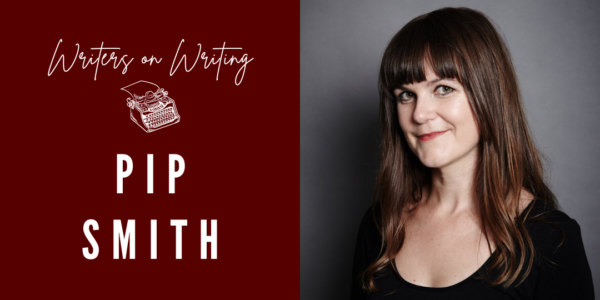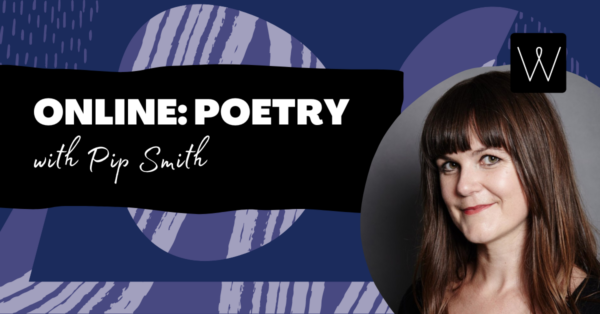
Can you give us insight into your creative process? What helps you get ideas onto the page?
My creative process is completely different from project to project, thank God, because at the end of each project I am usually sick of my brain and its patterns and I crave a whole new way of looking at the world. For this reason I write in many different forms—poetry, short fiction, novels, children’s books, songs—and the different processes they require are antidotes to each other. I can get a little too fixated and literal when I’m writing a long work of fiction, for example, and crave the associative, imagistic way of thinking that writing lyric poetry requires.
Sometimes my process changes due to circumstance, too. For the first year of my son’s life I didn’t have much time to share with a desk and a pen and paper, or even a laptop, but I did give the footpaths around my house a thorough workout, walking my son in his pram around the block in an attempt to lull him to sleep. The rhythm of walking lent itself to metre, and as I had no pen or paper handy I had to try and remember everything I came up with in my head. Rhymes helped the words stick, so that’s how I wrote To Greenland! a long rhyming poem was released as a picture book (with Beau Wylie as illustrator) through Scholastic.
Conversely, an initial idea I had for a novel came about in a flash in an unlikely location. I was walking along a deserted beach in Fiji, researching another novel. I was very lonely at that point in my trip and thought I saw something drift towards shore on the current. It turned out to be nothing, but I wanted so much for it to be something – or rather, someone. A story came to me, clearly enough that I could write it down in a grant application, and I knew straight away that I wanted to turn the story into a short sharp novella for children or young adults, a readership I didn’t think I’d ever write for. With the help of the grant I was able to work on the book 9 – 5 for a year, and because that initial idea had been funded, I had to stick to it – I couldn’t indulge in any self-doubt and change direction. It almost felt as though I was writing to (my own) brief. My challenges weren’t so much artistic, though that’s always a challenge, but technical – to do with wrangling narrative arc, pace, theme and nuance.
On the other hand my process when writing poems, songs and short stories is usually more exploratory. I don’t always know what I’m writing when I set out, or where I’m going, I’m just following a hunch, an energy, a ‘temperature’, voice or image. This is the kind of writing I most enjoy, but I also find it the most nerve-wracking, as you can put hours of work into something that never goes anywhere. The trick is to enjoy the process, I think, and allow yourself to surprise yourself.
What do you think is the value of poetry within society today?
Poetry has a way of cutting to the heart of a poet’s experience, a moment, a movement that stats and facts and op eds never can quite capture in the same way. Poetry has a way of deranging language so that we can see beyond its tired, well-trod pathways. Poetry can wake language – and the language-made-world – up for us. I’d say this isn’t so much true of ‘society today’ but society always.
You have been involved in many fantastic projects and programs, such as the National Young Writers Festival and the PPR Book of Short Stories. What is your advice for aspiring writers in finding their creative community?
Just launch yourself into one, don’t be shy! And if the community you are looking for doesn’t exist (and you have the time and energy), start one!
I have stepped back from organising writing events in recent years, wanting to divide my time between my own writing and my family, but I miss those days terribly; I’m not sure I was ever more imaginatively alive and switched on than when I was actively involved in organising writing events and hearing fresh new work read from a red velvet chair perched on a coffee table in my share house every month. Of course, for the introverts out there, there are other ways to be involved in writing communities – read and submit to literary journals; read local Australian work, and tell your favourite writers when you enjoyed their work.
Pip Smith is a novelist, poet, songwriter and children’s author based in Sydney. Her critically acclaimed first novel, Half Wild, was published by Allen & Unwin in 2017, and her first collection of poetry, Too Close for Comfort, won the inaugural Helen Anne Bell Poetry Bequest Award in 2013. She reviews Australian literature for the Sydney Morning Herald and the Australian, and has two children’s picture books with Scholastic: Theodore the Unsure (2019) and To Greenland! (2022). She has judged the poetry and fiction categories for the Woollahra Digital Literary Award since its inauguration in 2017, judged the Sydney Morning Herald Best Young Novelist Award (2021), and has taught creative writing in high schools and universities. She thoroughly enjoys climbing inside works of literature in development and working out what makes them tick.
Join Pip Smith for her course Online: Poetry, online from 6 May to 14 June 2024.

If you want to be the first to read great advice from our incredible tutors, subscribe to our weekly e-newsletter Newsbite.
More from Writing NSW
Check out our full range of in-person writing courses in Sydney, our online writing courses and our feedback programs to see how we can help you on your writing journey. Find out about our grants and prizes, as well as writing groups across NSW, and sign up to our weekly newsletter for writing events, opportunities and giveaways.
